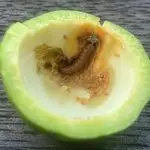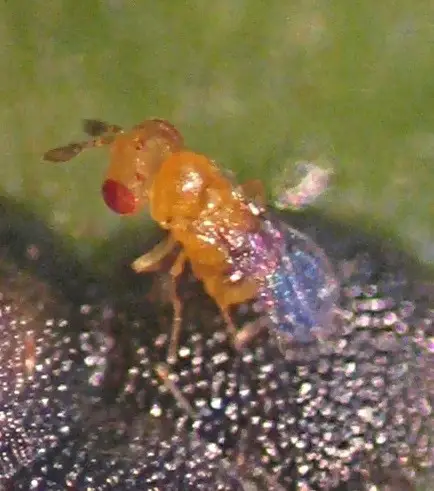MacTrix
Overview
Trichogramma cryptophlebiae (MacTrix) is a small parasitic wasp that targets the eggs of specific lepidopteran moths. It has been used in Australia since 2004 to control the Macadamia Nutborer (Cryptophlebia ombrodelta) on macadamia, longan, and lychee trees.
The application of MacTrix on a massive scale led to a dramatic reduction of insecticide use in macadamia orchards and is a good example of an Integrated Pest Management success story in Australia.
It is likely that MacTrix can parasitise other Tortricid moth eggs including Codling Moth (Cydia pomonella) in pome fruits, and Light Brown Apple Moth (Epiphyas postvittana). Tests are being conducted to assess their effectiveness on these pests.
Pests MacTrix can help you control
You can use Trichogramma cryptophlebiae to control the Macadamia Nutborer (Cryptophlebia ombrodelta) on a range of tree crops.
How MacTrix controls pests among crops
MacTrix is an egg parasitoid. Female MacTrix lay their eggs into the Macadamia Nutborer eggs. The larvae develop within the parasitized egg, consume the pest in the process and 2 or 3 adult MacTrix wasps emerge 10 days later to continue their lifecycle.
For more technical information on MacTrix, please visit the Bioresources website.
Certain pesticides and fungicides affect this product so contact your Biological Services Consultant for specific advice.
How you can order MacTrix
You can order MacTrix from Biological Services on corrugated cardboard sheets containing parasitized eggs (minimum order quantity is 1000 MacTrix wasps). MacTrix wasps are reared by Bioresources, a subsidiary of Biological Services.
Get tailored advice for your commercial crop
To speak with one of our qualified consultants about your current commercial crop challenge or to learn about the benefits of the IPM maintenance and monitoring services we provide, contact us.



